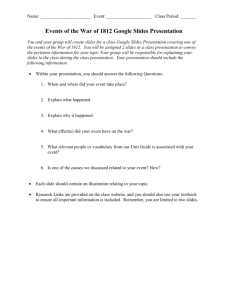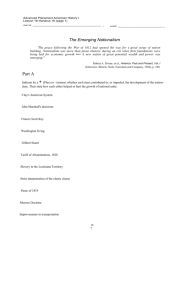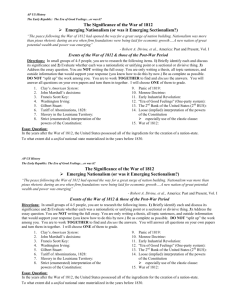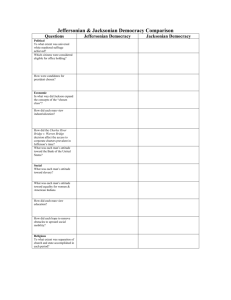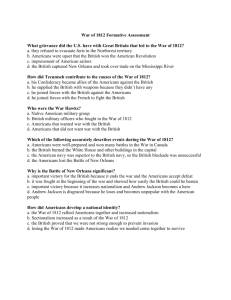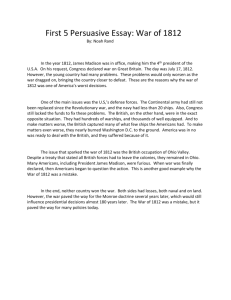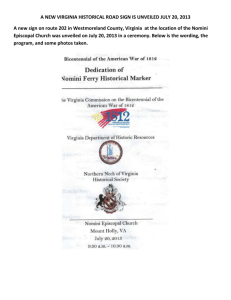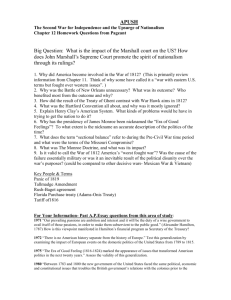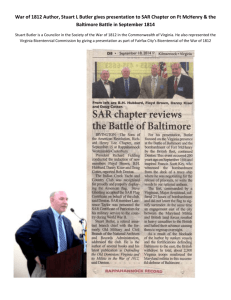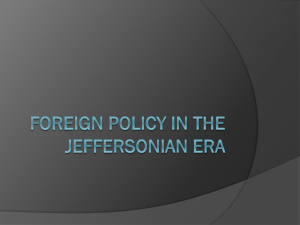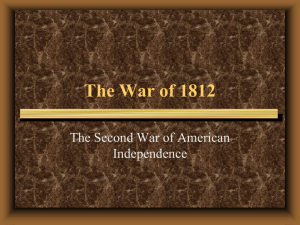Nationalism After the War of 1812 Worksheet
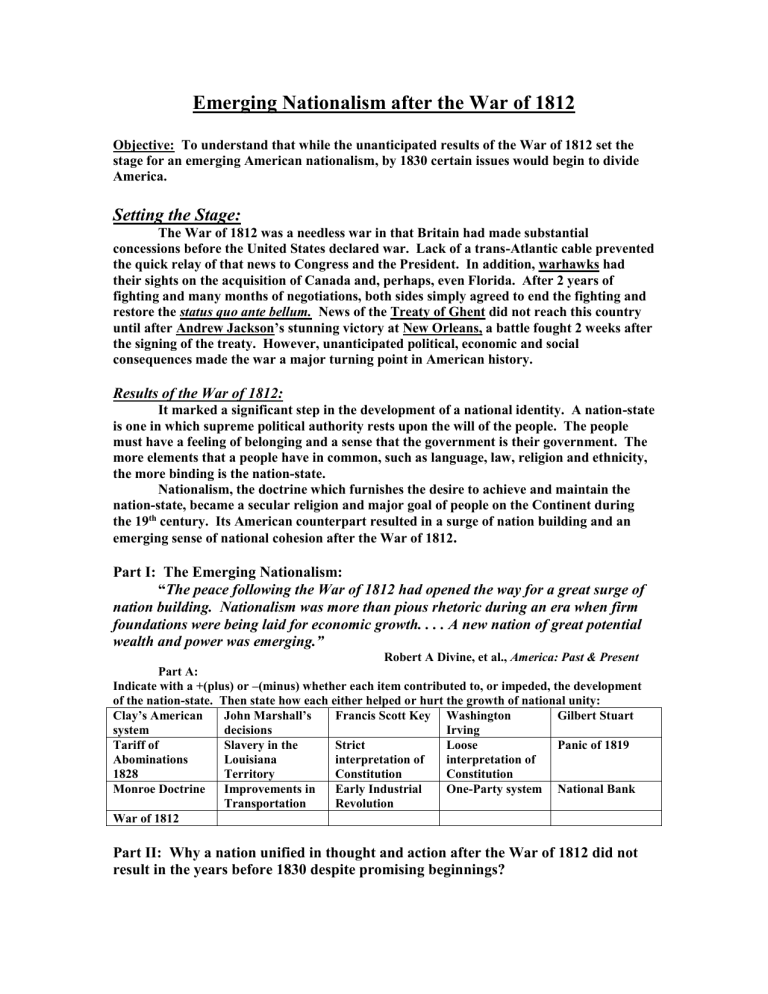
Emerging Nationalism after the War of 1812
Objective: To understand that while the unanticipated results of the War of 1812 set the stage for an emerging American nationalism, by 1830 certain issues would begin to divide
America.
Setting the Stage:
The War of 1812 was a needless war in that Britain had made substantial concessions before the United States declared war. Lack of a trans-Atlantic cable prevented the quick relay of that news to Congress and the President. In addition, warhawks had their sights on the acquisition of Canada and, perhaps, even Florida. After 2 years of fighting and many months of negotiations, both sides simply agreed to end the fighting and restore the status quo ante bellum. News of the Treaty of Ghent did not reach this country until after Andrew Jackson’s stunning victory at New Orleans, a battle fought 2 weeks after the signing of the treaty. However, unanticipated political, economic and social consequences made the war a major turning point in American history.
Results of the War of 1812:
It marked a significant step in the development of a national identity. A nation-state is one in which supreme political authority rests upon the will of the people. The people must have a feeling of belonging and a sense that the government is their government. The more elements that a people have in common, such as language, law, religion and ethnicity, the more binding is the nation-state.
Nationalism, the doctrine which furnishes the desire to achieve and maintain the nation-state, became a secular religion and major goal of people on the Continent during the 19 th century. Its American counterpart resulted in a surge of nation building and an emerging sense of national cohesion after the War of 1812 .
Part I: The Emerging Nationalism:
“The peace following the War of 1812 had opened the way for a great surge of nation building. Nationalism was more than pious rhetoric during an era when firm foundations were being laid for economic growth. . . . A new nation of great potential wealth and power was emerging.”
Robert A Divine, et al., America: Past & Present
Part A:
Indicate with a +(plus) or –(minus) whether each item contributed to, or impeded, the development of the nation-state. Then state how each either helped or hurt the growth of national unity:
Clay’s American John Marshall’s Francis Scott Key Washington Gilbert Stuart system decisions Irving
Panic of 1819 Tariff of
Abominations
1828
Slavery in the
Louisiana
Territory
Strict interpretation of
Constitution
Loose interpretation of
Constitution
Monroe Doctrine Improvements in
Transportation
War of 1812
Early Industrial
Revolution
One-Party system National Bank
Part II: Why a nation unified in thought and action after the War of 1812 did not result in the years before 1830 despite promising beginnings?
